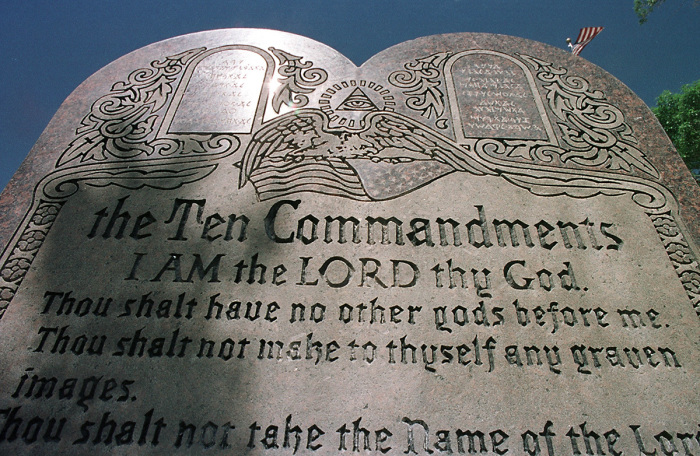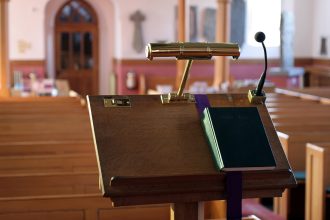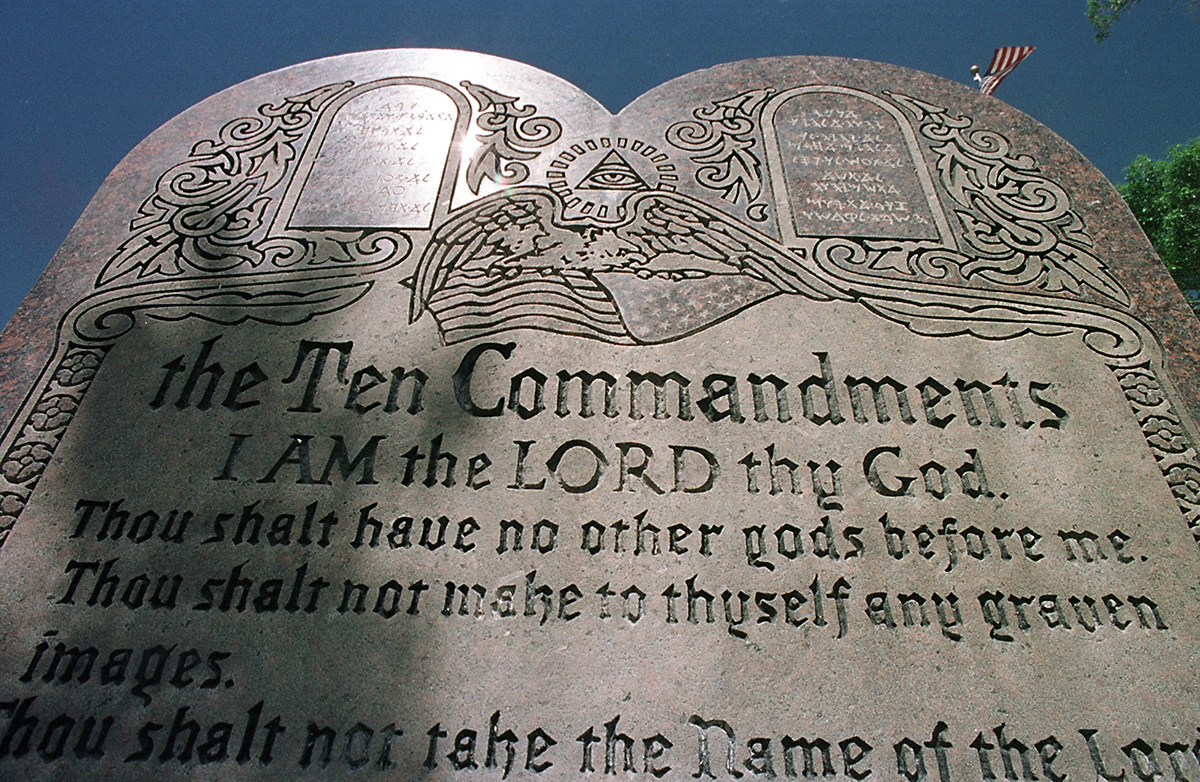
A Ten Commandments monument is returning to the Kentucky state Capitol grounds as religious liberty advocates and faith leaders offer differing opinions about the display.
House Joint Resolution 15, which overwhelmingly passed the Republican-controlled Kentucky House of Representatives and the Republican-controlled state Senate, became law Thursday without the signature of Gov. Andy Beshear, a Democrat.
The resolution authorized the return of a granite Ten Commandments monument to the Capitol grounds after it had spent decades in storage and a previous attempt to display the monument faced resistance from the courts. The monument was first donated to the Commonwealth of Kentucky in 1971 by the Kentucky State Aerie of the Fraternal Order of Eagles. It remained on display until the 1980s when it was moved for a construction project.
While a joint resolution approved by the Kentucky Legislature in 2000 authorized the monument’s return to Capitol grounds, a 2002 federal appellate court decision prevented it from going into effect. At that time, the monument was returned to the Fraternal Order of Eagles.
The 2025 resolution cited the 2005 U.S. Supreme Court decision Van Orden v. Perry that upheld the display of a Ten Commandments monument on state Capitol grounds in Texas, as one of several examples of courts upholding religious displays on public lands in an attempt to make the case that returning the monument to the Kentucky Capitol grounds was constitutional. The resolution requires the return of the Ten Commandments monument within 180 days of its effective date.
The resolution took effect Thursday, two weeks after the state Senate approved it in a 32-6 vote. The House voted in favor of the resolution in a 79-13 vote on Feb. 19. The votes fell mostly along party lines, with one Democrat in the Senate joining all Republicans in supporting the resolution, while four Democrats in the House broke from their party to back it.
In a statement shared with The Christian Post, First Liberty Institute Senior Counsel Roger Byron proclaimed, “We applaud the Kentucky legislature for restoring a part of Kentucky’s history.”
Byron added, “Like Kentucky’s monument, there is a long history and tradition of public monuments and displays that recognize the unique and important role the Ten Commandments have played in state and national history.”
“We are thrilled to return the Ten Commandments monument to the state and have it restored to the Capitol grounds, its historic location. The Eagles have donated over 100 Ten Commandments monuments to state and local governments over the years, and we’re glad to have ours back where it belongs,” said Vic Jeffries of the Fraternal Order of Eagles Aerie.
While First Liberty Institute and the Fraternal Order of Eagles cheered the return of the Ten Commandments monument, a coalition of 79 faith leaders from across the state spanning multiple religions and denominations stated their opposition to the development in a March 19 letter urging Beshear to veto the resolution.
The religious leaders characterized the resolution as “a misguided effort that will undermine the religious freedom we cherish as people of faith and leaders of faith communities.”
“The government must respect the rights of individuals and faith communities to make decisions about the sacred texts that inform our religious understandings and practices. Laws mandating the display of the Ten Commandments on government property demean that freedom,” they claimed in the letter to Beshear.
“The text of the monument at issue in HJR 15 is not universal or inclusive of all faith traditions,” they maintained. “Indeed, the monument’s version of the Ten Commandments does not exist in any translation of the Bible, nor do the Ten Commandments as such hold religious meaning for hundreds of thousands or more of Kentuckians who are Muslim, Hindu, Buddhist, Sikh, Unitarian Universalist, or who practice other religions or no religion at all.”
Insisting that “Matters of faith should remain in the family and in faith communities, and not in the hands of government officials,” the signatories asserted that the “Capitol is the seat of our state government and should be welcoming to all Kentuckians, regardless of their faith.”
They expressed concern that “by communicating the government’s preference for some faiths, the monument undercuts the religious equality Kentuckians share and threatens to use the Ten Commandments as a symbol of exclusion and religious intolerance.”
Ryan Foley is a reporter for The Christian Post. He can be reached at: ryan.foley@christianpost.com








